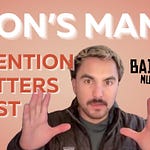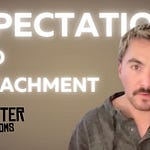Hey, let’s chat about something that’s often overlooked in wildland firefighting—the confusion of duty that many of us face. I’ve been in this community for a few years now, and I’ve seen firsthand how the federal employment structure affects our pride and sense of duty, both on and off the clock
Wildland firefighting is a unique and noble work and lifestyle that should have pride in itself because it helps our communities and can potentially save lives.
But when the season ends, some firefighters can feel lost and act in ways that are harmful to themselves.
I’ve seen firsthand that even though our work is important, there are problems in the system that can make it hard for us to stay motivated and keep learning.
A Quick Summary of the Podcast
The Impact of Government Structures
- Firefighters are often regarded as expendable once the season ends, affecting their sense of worth.
- A lack of encouragement for personal and professional development during off-duty times breeds cynicism.
- Historic recognition as "forestry technicians" rather than wildland firefighters limited access to benefits and symbolic acknowledgment.
My Personal Experience with Wildland Firefighting
- Throughout my years in firefighting, I've witnessed diverse experiences and the duality of optimism and cynicism.
- The system often lacks support for firefighters' growth, fueling issues like alcoholism and stunted personal development.
- Inspiring leadership can make a difference, but systemic changes are necessary for meaningful progress.
Defining Duty and the Driving Forces in Firefighting
- Duty in firefighting involves a self-driving force that separates it from ego-driven motivations.
- Ego-driven performance often stems from fear and anger, contrasting with the grace of duty-driven actions.
- The lack of true recognition and fair treatment has led to firefighters mocking their roles' nobility.
Policy Changes for Better Support
- Recognizing all fire personnel as wildland firefighters ensures better health protections.
- Increased pay allows for selective hiring and more responsible positioning.
- Off-season support and consistent health benefits are crucial for maintaining a sustainable career in this field.
In summary, my time in wildland firefighting has been marked by witnessing and experiencing the ups and downs of this noble yet challenging profession. While we perform commendable work, it's vital for the system to support us better during and after fire seasons.
Key Takeaways
- Our pride fades when the season ends, affecting our mental health and self-worth.
- Systemic, high-level changes are needed to provide proper recognition and support for firefighters.
- Advocating for policy changes can help combat the cynicism and lack of duty felt off the clock.
Let's push for a culture that genuinely supports and honors this essential work.
Best,
Dom













Share this post